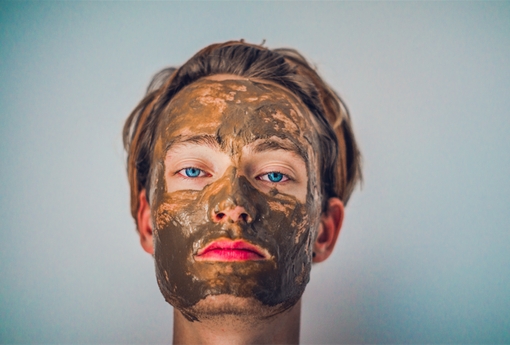|
"Magical."
"The most important ingredient in skincare in decades." "Miracle substance." These are some of the ways people have described charcoal in the cosmetic realm. Charcoal masks have been all the rage for years. Charcoal is a much celebrated nonmetal element (coal!) that people consume for gastrointestinal issues as well as slather on to get rid of impurities. But does it actually work? First off, what is activated charcoal and regular old charcoal? The activated form is carbon that's been treated (usually via heat) to have multiple small pores, folding in on itself like a piece of cheese cloth. This has the important effect of increasing its surface area so that it can interact with more substances and increase its absorbency. Medically, activated charcoal has been used for years in hospitals to treat certain kinds of poisoning. The key to charcoal is that it acts like sticky tape, binding to substances (good or bad) and helping to get rid of poison--in the case of stomachs--or theoretically dirt and oil, in the case of skin. There is no shortage of cosmetic experts proclaiming the benefits of charcoal, from everything to whitening teeth to "detox" dieting. For example: “Charcoal is known to absorb 100 to 200 times its weight in impurities, making it an excellent natural ingredient to help purify and deep-clean skin,” said Director of global product development at Origins Wendy Brooks in a NY Daily News article. But does the science hold up? When it comes to scientific studies however, there is little to support that charcoal can help with cosmetics, despite the numerous blogs and dieters advocating for it. There are no evidence-based research studies showing that charcoal has a benefit to skincare. That doesn't mean that it's not useful, however, but it does mean you should evaluate any cosmetic claims with a healthy dose of skepticism. Of course, there is no single magical ingredient in skincare (though there are plenty of good ones)! Despite the lack of evidence, for any relatively safe and affordable items that have anecdotal success, it can be worth an experiment for yourself. And, like with any product, consult a doctor if you have a skin condition and always be careful to not overdo any particular ingredient. If you are going to try out a charcoal-based skin product, Good Housekeeping has recommendations on what to try for skin type: For city dwellers, it's very important to wipe out smog residue as it can contribute to skin discoloration, aging, and even skin cancer. Use an AC-based cleanser at least once a week to say "peace out" to pollutants. A charcoal-infused sponge used during washing is also a safe bet. Charcoal products i like
0 Comments
Your comment will be posted after it is approved.
Leave a Reply. |
About MeI use my background in molecular biology and science to dive into what makes Korean skincare and cosmetic products so effective. Then, I share my findings with you all! infographic |

